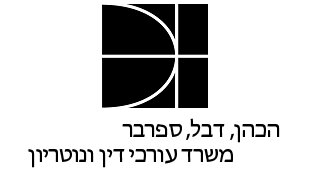Best Bankruptcy Lawyers in Israel
Share your needs with us, get contacted by law firms.
Free. Takes 2 min.
Or refine your search by selecting a city:
List of the best lawyers in Israel
About Bankruptcy Law in Israel
Bankruptcy law in Israel is designed to provide debt relief to individuals and businesses that are unable to meet their financial obligations. The law aims to balance the interests of debtors and creditors, offering a legal framework for debt resolution while ensuring fairness and transparency in the process. In Israel, bankruptcy proceedings allow debtors to discharge certain debts, reorganize their finances, and eventually gain a "fresh start." The process is overseen by the Courts and the Official Receiver, which is a governmental entity responsible for supervising insolvency cases.
Why You May Need a Lawyer
Engaging a lawyer can be critical in navigating bankruptcy proceedings effectively. Common situations where legal assistance is beneficial include:
- Understanding the eligibility criteria and administrative procedures involved in filing for bankruptcy.
- Handling complex negotiations with creditors to reach amicable settlements before opting for formal bankruptcy.
- Guiding you through court procedures and representing you in court hearings if disputes arise.
- Ensuring compliance with statutory timelines and submissions of required documentation.
- Analyzing your financial situation to determine the best legal strategy for debt relief.
- Protecting your rights and interests against aggressive creditor actions or fraudulent claims.
Local Laws Overview
Key aspects of bankruptcy laws in Israel include:
- The Bankruptcy and Insolvency Law of 2018: A comprehensive framework that redefines the rights and obligations of debtors and creditors.
- Emphasis on rehabilitation: The law prioritizes the financial recovery and reintegration of debtors into the economy.
- Debt discharge: A legal process through which a portion of the debtor's debts may be forgiven, provided they comply with court orders and creditor agreements.
- Corporate and personal bankruptcy: Separate procedures and processes exist for businesses and individuals facing insolvency.
- Role of the Official Receiver: An integral oversight authority to ensure that bankruptcy proceedings are conducted fairly.
- Settlements and restructuring: Options available for distressed companies to restructure their debts outside formal bankruptcy proceedings.
Frequently Asked Questions
What is the purpose of bankruptcy proceedings in Israel?
Bankruptcy proceedings aim to offer relief to insolvent individuals or entities, allowing them to settle debts efficiently while providing a fair outcome for creditors.
Who can file for bankruptcy in Israel?
Any individual or corporation that is unable to pay its debts may seek bankruptcy protection under Israeli law.
What are the typical outcomes of bankruptcy proceedings?
Outcomes can include debt discharge, a repayment plan, or a reorganization of finances, depending on the debtor's situation and court decisions.
How long does the bankruptcy process usually take?
The duration varies, but personal bankruptcy typically lasts up to three years, while corporate bankruptcy can take longer.
What is the role of the Official Receiver?
The Official Receiver supervises bankruptcy proceedings to ensure compliance with legal standards and maintains oversight over the distribution of assets.
Can all types of debt be discharged in bankruptcy?
Not all debts are dischargeable. Certain obligations, such as child support or fines, may persist post-bankruptcy.
What is the process for filing for bankruptcy?
Filing includes submitting a petition, financial disclosure, and compliance with court orders, which a legal professional can help navigate.
Do creditors have any recourse during bankruptcy proceedings?
Creditors may file claims and participate in proceedings to ensure fair treatment and potentially recover part of what they are owed.
Can I retain any property after bankruptcy?
Some personal property may be exempt from bankruptcy proceedings, allowing debtors to retain assets essential for daily living.
Is it possible to settle debts outside formal bankruptcy?
Yes, amicable agreements or restructuring plans can sometimes be negotiated with creditors without resorting to formal bankruptcy.
Additional Resources
For further guidance, consider reaching out to the following resources:
- The Official Receiver - Government agency overseeing bankruptcy and insolvency matters.
- The Israeli Ministry of Justice - Provides access to legislation and legal services.
- Legal clinics and nonprofit organizations providing free or reduced-cost legal advice.
- Bankruptcy attorneys - Professionals experienced in handling bankruptcy cases.
Next Steps
If you believe you may need legal assistance with bankruptcy, consider the following steps:
- Evaluate your financial situation to determine immediate needs and options.
- Schedule a consultation with a qualified bankruptcy lawyer to understand your rights and obligations.
- Gather relevant financial documents and records to support your case.
- Develop a plan to manage your creditor communications while seeking legal counsel.
- Use available resources to educate yourself about the bankruptcy process and potential outcomes.
Lawzana helps you find the best lawyers and law firms in Israel through a curated and pre-screened list of qualified legal professionals. Our platform offers rankings and detailed profiles of attorneys and law firms, allowing you to compare based on practice areas, including Bankruptcy, experience, and client feedback.
Each profile includes a description of the firm's areas of practice, client reviews, team members and partners, year of establishment, spoken languages, office locations, contact information, social media presence, and any published articles or resources. Most firms on our platform speak English and are experienced in both local and international legal matters.
Get a quote from top-rated law firms in Israel — quickly, securely, and without unnecessary hassle.
Disclaimer:
The information provided on this page is for general informational purposes only and does not constitute legal advice. While we strive to ensure the accuracy and relevance of the content, legal information may change over time, and interpretations of the law can vary. You should always consult with a qualified legal professional for advice specific to your situation.
We disclaim all liability for actions taken or not taken based on the content of this page. If you believe any information is incorrect or outdated, please contact us, and we will review and update it where appropriate.
Browse bankruptcy law firms by city in Israel
Refine your search by selecting a city.

















